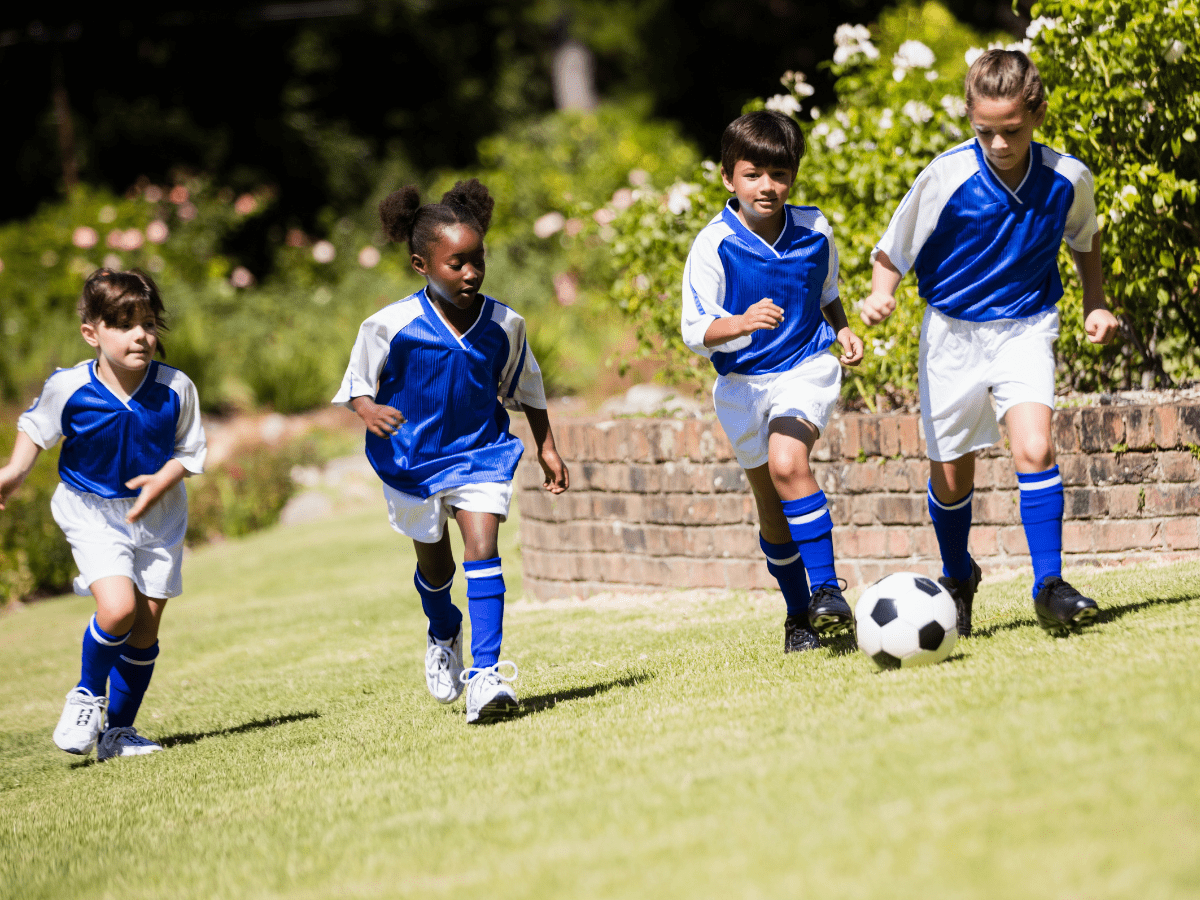
If you’ve ever watched a 9-year-old happily chase a soccer ball, only to see that same kid quit sports entirely by the time they reach adolescence? If so, you’re not alone. Unfortunately, this reflects a common trend in Canada, and it’s one that researcher and epidemiologist Dr. Mathieu Bélanger has been trying to unpack for over a decade.
Bélanger, a professor in the Department of Family and Emergency Medicine at the Université de Sherbrooke and a researcher with the Vitalité Health Network, has been at the helm of one of the longest-running studies on sport participation in Canada: the MATCH study. Since 2011, his team has been following nearly 1,000 young people from Grade 5 or 6 into adulthood, in an effort to understand why some kids stay in sport, and others don’t.
“We know that sport has incredible benefits at all ages,” Bélanger says. “But participation typically peaks around age 12 or 13 and then declines.” The MATCH study, a longitudinal project funded by SSHRC and Sport Canada, tracked those changes, and crucially, what drives them.
What they found? Participation in sport is a lot like teenage moods: it’s complicated, deeply personal, and heavily shaped by environment. It’s influenced by multiple factors and not always the ones we often think.
Sport and adolescence: It’s not just about access, it’s about enjoyment
Contrary to common assumptions, Bélanger’s findings suggest that external factors like money, equipment, or weather, while important, aren’t the most critical barriers in the long run.
“What we found is that internal barriers like how competent someone feels, or how much autonomy they have are far more important,” says Bélanger. “Even if there are external barriers, people will find ways to overcome them if they feel good about participating.”
Translation: if a teen believes they’re good at their sport, enjoys it, and feels it was their choice to play, they’re much more likely to stick with it.
And that brings us to one of Bélanger’s favourite words: fun.
“Keep it fun. That’s the most important thing. We call it playing sports for a reason,” he says.
Not all kids drop out: What can we learn from those who persevere?
While overall participation tends to decline, Bélanger and his team made an interesting discovery: a significant number of young people do stay active either in sport or through other forms of physical activity.
“We often focus on those who drop out, but some kids maintain high levels of participation,” he explains. “With the MATCH study, we could actually describe these young people and what sets them apart.”
And interestingly, many of them pivot from organized sport to less structured activity, something existing athlete development models don’t always capture.
“They’re introduced to sport, and that gives them a taste for physical activity,” he says. “Eventually, they may leave organized sport but continue to stay active.”
The role of parents: Help or hindrance?
If you’re a parent reading this, take note: your actions matter. A lot.
Parental support, especially the tangible kind, was one of the strongest predictors of continued sport participation. That means driving kids to practice, paying registration fees, and making sure they have decent equipment.
But Bélanger also cautions against what he calls “controlling behaviours” like nagging, guilt-tripping, or criticizing performance on the ride home from practice.
“Criticism can have a negative impact, even if parents think they’re being helpful,” he says. “What’s more effective is offering opportunities and support, not pressure.”
And one fascinating wrinkle? When parents participate in less common sports themselves, think ultimate frisbee or rock climbing, their kids are more likely to try those sports too. In other words, variety helps.
The big picture: Behaviour over a lifetime
Unlike short-term fitness studies that focus on outcomes after a few weeks, the MATCH study is unusual in that it tracks behaviour over 14 years.
“We do a lot of studies where we run a program for 12 weeks and then measure the impact,” says Bélanger. “But sport participation is behaviour and behaviour develops over a lifetime.”
The benefit of this long lens is that it allows researchers to validate and challenge existing athlete development models. While some common patterns held true, Bélanger’s team also identified new participation trajectories that weren’t previously accounted for.
Redefining the Canadian sport system
Ultimately, Bélanger hopes this research will help reshape how we design sport systems in Canada, not just to create elite athletes, but to foster lifelong engagement with physical activity.
Because at the end of the day, sport isn’t just about winning medals or setting records. It’s about movement, community, and joy. Or as Bélanger reminds us: “It’s supposed to be fun.”
For more about Dr. Mathieu Bélanger’s work and research:
Additional Resources: